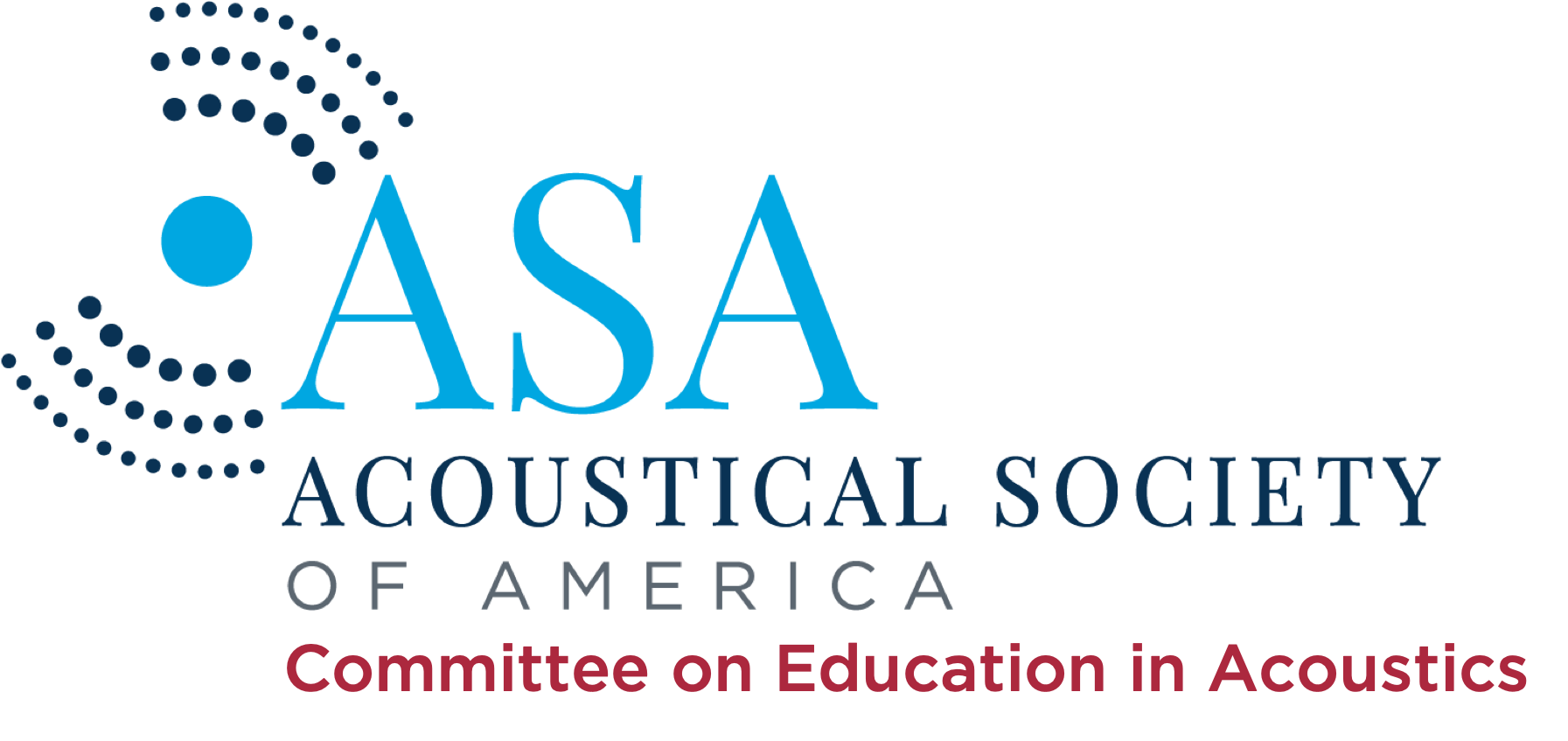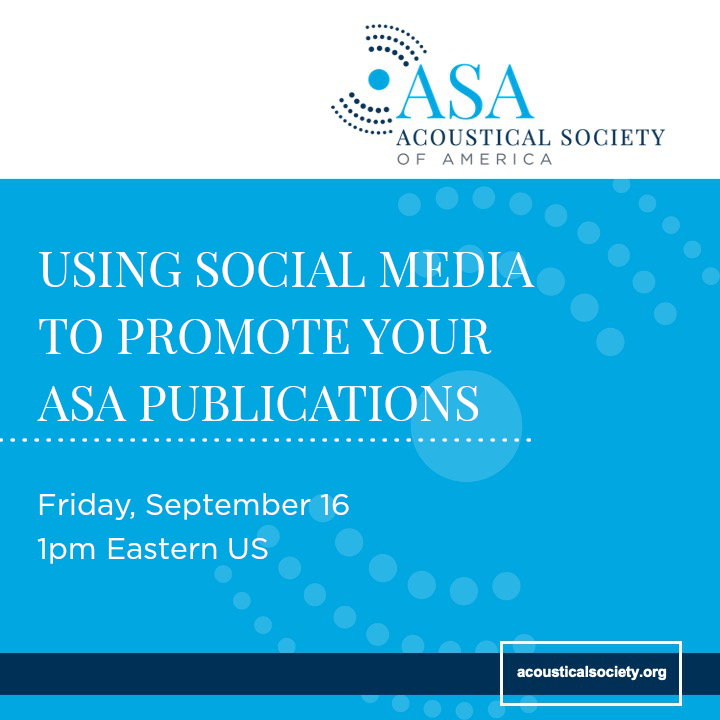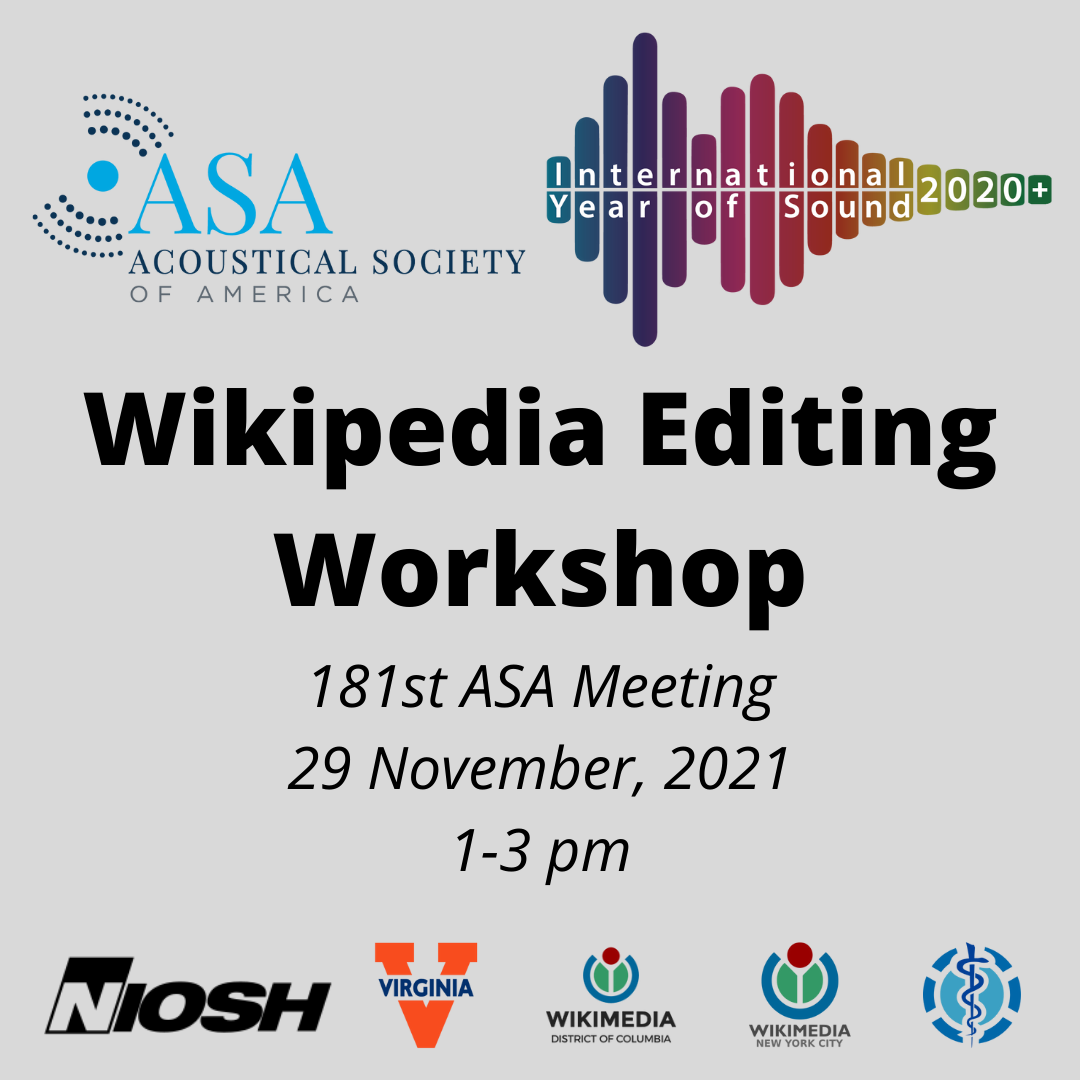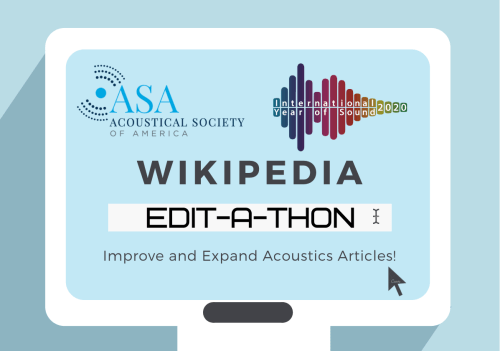Share Your Published Research

This guide provides tips and templates for promoting your publications on social media. When you see text within brackets [ ], this indicates that you need to edit according to the instructions. After customizing the text, remove the quotation marks and brackets before posting.
- “Read my article published with @acousticsorg in [@JOURNAL] about [ONE SENTENCE SUMMARY]: [INSERT DOI LINK]”
- “Have you heard? [PAPER’S TITLE] from [JOURNAL NAME] on [#SUBJECT] is available to read [INSERT DOI LINK]”
- “Read my latest #research on [#SUBJECT], published with @acousticsorg in [@JOURNAL]. Read here: [INSERT DOI LINK].”
- If you’re savvy with image or presentation software, try creating a visual abstract! Include the title, publication info, one or two key takeaways from the article, and an eye-catching visual.
Looking for more instructions and examples? Review the ASA Publications Guide to Social Media: https://acousticalsociety.org/asa-publications-guide-to-social-media/
Twitter Posters
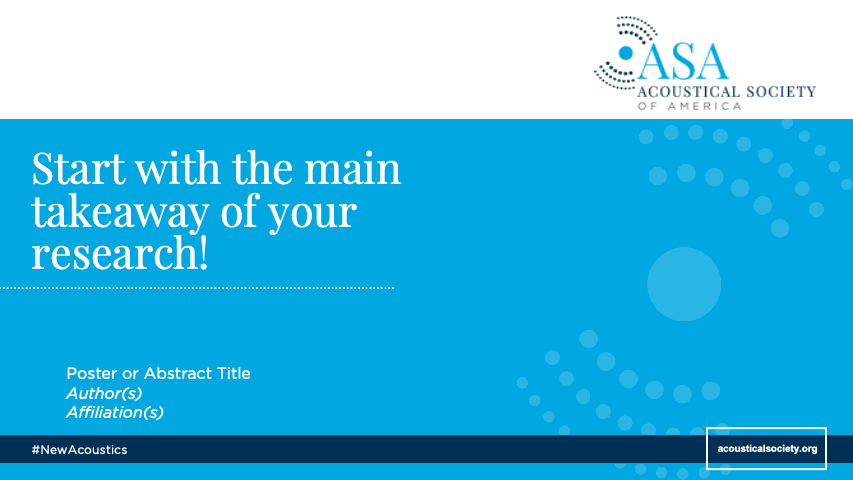
This is a fun way for scientists and professionals to share their findings in an engaging way that helps colleagues and the public learn about acoustics research! It’s quick and easy; just follow the instructions below.
1. Download the ASA Twitter Poster Template.
– Teach people your main takeaway on the first slide.
– Next, add a key figure and explain what it shows.
– Then, teach your methods in simple steps.
– Finally, explain why your findings matter.
2. Save your slides as an animated GIF.
– Go to file and select export.
– For PC, select Create Animated GIF.
– For Mac, change file format to Animated GIF.
– Set quality to “Medium” and seconds to ~4-5.
3. Tweet it!
– Include #NewAcoustics, and any other relevant meeting or field hashtags.
– Include a link to your abstract or relevant article.
Looking for more instructions and examples? Watch this video.
Join the Committee!
The meetings of the ASA Committee on Education in Acoustics (EdCom) are open to all members of the Society. They are held on Tuesdays at the semi-annual ASA meetings, usually starting at 4:30pm. New members of the committee are appointed in January each year. If you are interested in the work of EdCom and are interested in joining the committee, please e-mail the committee chair at the link below.
Past EdCom Activities
ASA Publications’ will be hosting a virtual workshop on Friday, September 16th, at 1pm Eastern, to show researchers how to engage with the acoustics community on social media. This interactive workshop will explain why social media is such a useful tool for researchers, how to get started on Twitter and other social media platforms, plus tips and tricks to make the most impact with your social media presence.
Although social media interactions may seem trivial, this engagement increases the camaraderie among researchers, especially across the world, and increases the visibility of acoustics to the larger public. Increasingly, social media engagement provides a proxy for the interactions in scientific workplaces and conferences, providing a more continual engagement of a broader and more inclusive audience. Social media is also an effective tool for promoting published content, answering acoustics questions, and conducting scientific outreach.
Those interested can register at https://us06web.zoom.us/meeting/register/tZArf-GrqDgsEtQLSNFyDT2fJXOkYzhY-Xil
In celebration of the International Year of Sound, a Wikipedia Editing Hands-on Workshop will be held on Monday, 29 November 2021, 1:00 p.m. to 3:00 p.m. during the 181 ASA Seattle meeting where attendees will discuss and edit Wikipedia.
Acoustics experts can become Wikipedia experts and contribute to the International Year of Sound by taking part in this Wikipedia Workshop. The purpose of the workshop is to acquaint new and experienced editors to improving acoustics content on Wikipedia. In the first hour, participants will learn the basics of Wikipedia and how to edit followed by hands-on editing with guidance and support from the experts. More experienced editors are invited to stop by in the second hour to help improve Acoustics content areas of need. At the end of the program, all participants will have contributed to improving Wikipedia Acoustics and feel more comfortable editing on their own. All registered meeting attendees are encouraged to come! Please bring your computer and create a Wikipedia account in advance of the Workshop.
Can’t make it in person, but still want to contribute or follow along? Register for wiki event or view outcomes by clicking here.
Contributions done during January through December 2020 will be highlighted in the International Year of Sound report of activities. Even small contributions help and you can start today!
